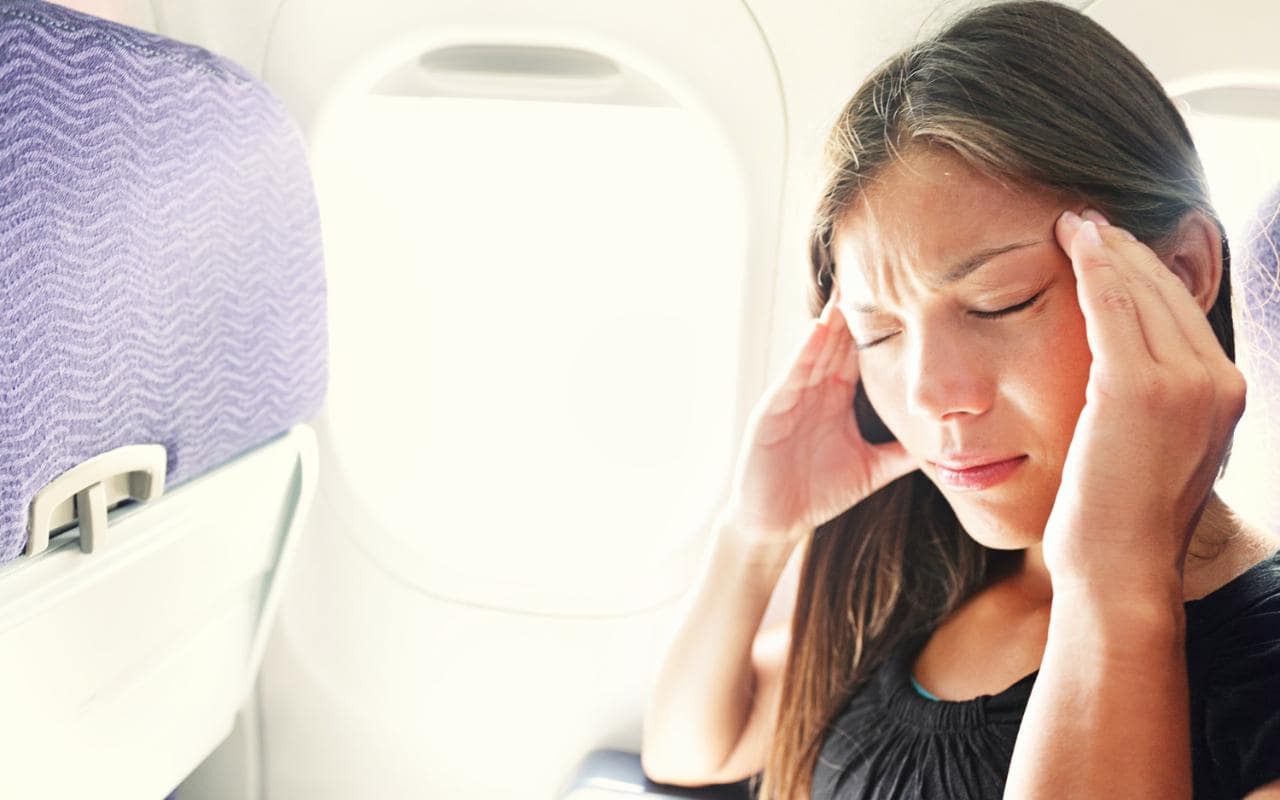Are you a frequent flyer? Do you like jetting off on weekends away here, there and everywhere? Or maybe you have to regularly catch overseas flights for work? If so, you’ll be acutely aware of the rigmarole that goes along with air travel – being cooped up in a plane for several hours, forced to consume fairly unappetising food as you cross time zones. Do you find you’re exhausted at the end of a long flight? Do your legs and joints feel constricted? Does your skin dry up? Does your breath even seem to smell? If so, you’re encountering the negative physical effects of air travel. This blog post’s all about addressing them – and suggesting tips (including some handy supplements and probiotics you might consider trying) to combat them…
Bad breath
One of the big reasons why air-flight can be momentarily bad for your health is because it forces some bodily functions to slow down – the change in air-pressure the body experiences encourages it to prioritise some functions over others. An example of this is the salivary glands producing less saliva than normal, aiding more bacteria to grow inside the mouth and resulting in bad breath (or halitosis). Moreover, by consuming fast food and sweetened drinks – as many of us do on a flight – you’re only likely to help bad breath develop further as the bacteria feasts on sugar. To combat halitosis then, be mindful of what you eat and drink (water’s highly advised) and brush your teeth after meals, whenever possible.
Leg-swelling
You’ve doubtless heard of deep vein thrombosis (DVT); owing to poor circulation, a deep vein in the body develops a blood clot. Statistics suggest as many as one in every 1,000 people in the UK suffer from the condition and one of the occasions when they’re most at risk is when travelling (because it can involve long periods of sitting still and not moving), while the American Heart Association reckons that both dehydration and low cabin pressure can also be contributory factors. To keep the threat of DVT at bay, it’s important to encourage circulation, so make sure get up and walk around every hour or so of your flight.
Drying-out skin
Because of their air-pressurised nature, aeroplane cabins are dry environments to find yourself in for long stretches of time. In which case, they can cause your skin’s natural moisture to evaporate, forcing your face to dry up and look unhealthy. Moreover, if you’re not the biggest fan of flying, it’s easy to become stressed – however, slightly – and this won’t help matters. Stress drives up levels of the hormone cortisone, which intensifies the red, blotchy appearance of your skin. To combat dry skin on a flight then, it’s crucial you hydrate yourself by drinking water – you might also consider applying skin moisturiser (pack a bottle under 100ml in your hand luggage).
Digestive discomfort
Another result of sitting still for hours and the slowing-down of your metabolism is digestive discomfit. Yes, we’re talking a build-up of gas here; feeling bloated, uncomfortable constipation and stomach pains. And this can be contributed to by alterations to the body’s circadian rhythms (what it usually experiences in a 24-hour cycle), which may occur should you be flying overnight or moving between time zones. A good idea to ease the burden on your digestion is not to consume a big meal right before boarding your plane. Also, moving about during the flight’s likely to help, as is having a high-fibre snack every now and again (nut- or seed-based).
Supplements, probiotics and more
If all these tips to make your flight go a little easier on your body and health sound good, then you might be pleased to learn there’s still more you can do. Indeed, how about probiotics and supplements for air travel? All the following are available through The Finchley Clinic; meaning, of course, we recommend them all…
Aerobic Oxygen (60ml) – a fluid-based supplement that provides stabilised oxygen; a healer and cleanser to the digestive system which also, according to our customers, can be a big help should you suffer from bad breath
Colosan (120 capsules) and Oxy-Powder (120 capsules) – thanks to releasing a singlet oxygen into the intestinal tract, a suitable dosage from either of these supplements should keep your bowels loose, thus preventing constipation and help stave off infection; plus, as constipation generates the ideal environment for candida, bacteria, germs and other toxins, either supplement should help prevent their proliferation
Optibac Probiotics (10 sachets) – this might be a more suitable product should you be wanting to prevent constipation while you’re travelling as opposed to if you’re already suffering from it; Optibac works by helping maintain a healthy balance of ‘good’ bacteria over ‘bad’ in the digestive system
Aquaspirit (spray) – because it provides circulation-stimulating properties, bio-available oxygen and aromatherapeutic nutrients, this product’s ideal to apply to skin that may have dried out thanks to a long air flight.





